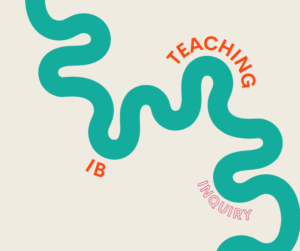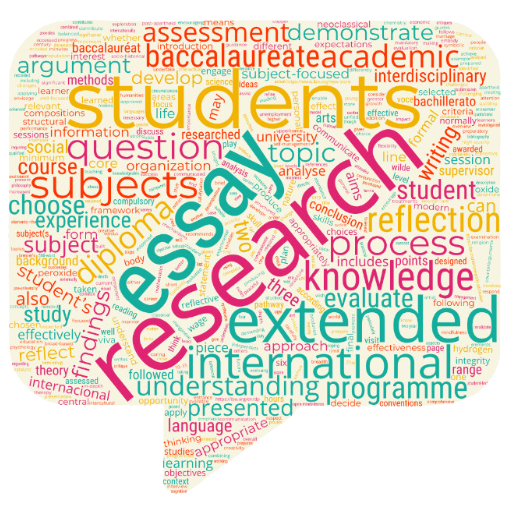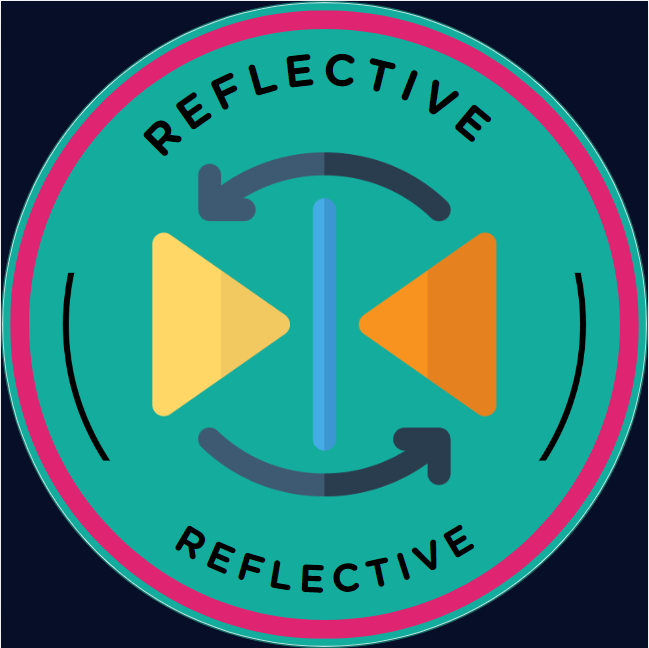Embracing Inquiry: The IB Learner Profile Inquirer Trait
The International Baccalaureate programme, through its Mission Statement and Learner Profile, seeks to cultivate agency in students as they grow cognitively, affectively and kinaesthetically. This holistic, values-based approach encourages all students to develop their skills of thinking, feeling and appreciating wellness.
As students develop their sense of safety in their world and confidence in themselves, they become courageous enough to trust their judgment, to wonder, to ask questions of themselves, others, and the world in which they live, Thus, through these aspects of inquiry, students learn to engage in sense making, both independently and collaboratively.
Developing Inquiry in the Classroom
An inquirer dares to wonder, to speculate, to ask ‘what if…’, in short, to acknowledge what the world offers and to consider alternatives to its offerings. An inquirer seeks to understand themselves and their world.
 An inquirer dares to question and perhaps to reimagine their understanding. Personally, inquirers develop the courage to refine their identity as they experience new skills. They embrace change for the productive challenge it offers. Educationally, inquirers develop an appreciation of complexity, and yet can appreciate the small components of all complex systems. They learn to leverage the frustration and challenge of new challenges into steps in a process of meaning-making.
An inquirer dares to question and perhaps to reimagine their understanding. Personally, inquirers develop the courage to refine their identity as they experience new skills. They embrace change for the productive challenge it offers. Educationally, inquirers develop an appreciation of complexity, and yet can appreciate the small components of all complex systems. They learn to leverage the frustration and challenge of new challenges into steps in a process of meaning-making.
Being an inquirer is essentially an act of hope…a hope that they have the ability and tenacity to meet and overcome obstacles, and that this process is a key element of human progress. This hopeful curiosity can lead to the commitment to ‘be the best person I can be’, and to offer my skills for the benefit of my community.
There are many forms of inquiry-based learning that, depending on the needs of the students, might form the basic structure of IB instruction. (Structured, Guided, Open, Experiential, Problem-based) All inquiry includes 3 components:
- Prompting questions, curiosities, wonderings, problems by tying curricular goals to student interests and passions.
- Taking action based on questions, hypotheses, speculations, comparisons to flesh out the topic at hand (its nuances, complexities, confusions).
- Reflection on the process of discovery through questions (what worked well?; what should we avoid?; what is the current state of our learning?, what remains to be discovered?;) and through visible thinking routines (I used to think…now I think..; see/think/wonder, etc.)
Inquiry-based classrooms focus on the process of inquiry and the agency of students in the decision-making aspects of the process. The aim is to achieve a high degree of personal and collaborative student engagement, under the guidance of the teacher. Ultimately, the sense-making conclusions of the inquiry process should be owned by the students. Conclusions are often not regarded as ‘final’, but as prompts for further investigation. Nurturing inquiry leads to lifelong learning and adaptability.
Encouraging Student-Led Inquiry
Constructing and teaching in an inquiry-based classroom requires intentional teacher preparation. Several guiding questions can help in this process.
Does my unit design:
- promote curricular goals by inviting students to consider their thinking about the topic/problem/issue?
- raise provocative questions and invite students to refine these questions and add their own?
- create opportunities to experience joy, wonder, confusion, curiosity in a supportive environment?
- encourage a multi-disciplinary approach to the topic?
- create a scaffolded approach to move from simple to complex concepts?
- invite students to catalogue their existing knowledge and ideas about the topic (what I know), and invite them to consider how they will further their learning (what I need to know)?
- offer students opportunities to collaborate with others in a process of ‘sense-making’?
- invite students to access their prior knowledge about the topic as a building block for their learning journey?
- create opportunities for reflection (journaling, debates, gallery walks, teacher/student interviews, media presentations) that allow students to present the progress of their learning?
- create opportunities for students to express and incorporate their feelings and dispositions during the learning process
- put students at the center of the learning process and promote the teacher role as a ‘meddler in the middle’?
- include assessments (formative and summative) that honor the process of learning as well as the content of learning?
- promote student agency in the following learning areas: content, concepts, process and metacognition?
- create opportunities for students to transfer their learning to different topics, disciplines, assessment types?
Challenges and Solutions in Promoting Inquiry
Inquiry begins with curiosity based on experience. Students’ experiences generate questions about themselves, other people, and the world. Some of the challenges of promoting inquiry involve:
- honoring student experience/questions/wonderings as the basis for their engagement in a topic
- integrating curricular goals seamlessly into student experiences and curiosities
- understanding the time required for the preparation and implementation of an inquiry-based classroom
- understanding when to use inquiry, and when to use other instructional strategies
 creating a pedagogical approach that uses the knowledge and discovery of content to help students engage in ‘meaning making’
creating a pedagogical approach that uses the knowledge and discovery of content to help students engage in ‘meaning making’
Teacher mindset is crucial to the implementation of successful inquiry-based classrooms. The main elements of this mindset are:
- allowing student to be ‘co-authors’ of their classroom learning journey
- accepting that the teacher role is that of a ‘meddler in the middle’, not just a dispenser of content.
- recognizing that the process of learning is just as important as the content of learning
- understanding that the two key teacher attributes for inquiry are the preparation of invitational classroom experiences for students, and the teacher role as facilitator of student learning in the classroom setting
Conclusion: The Path Forward for IB Inquirers
Simply put, our world needs human beings who can appreciate their role in the intersecting ecosystems of experience. The world is full of complexity. The problems of the world resist superficial ‘solutions’.
The IB mission and learner profile commit teachers and students to a mindset of curiosity, growth, diversity, wonder and joy. Inquiry provides a fertile field for the growth of these qualities.
Engage with CASIE for further training and resources on the IB Learner Profile.




